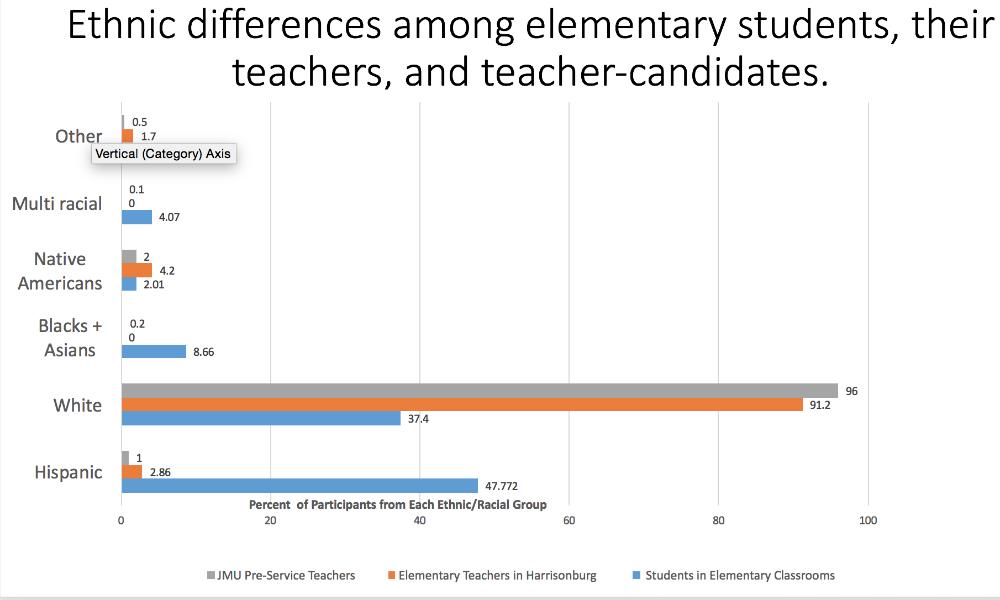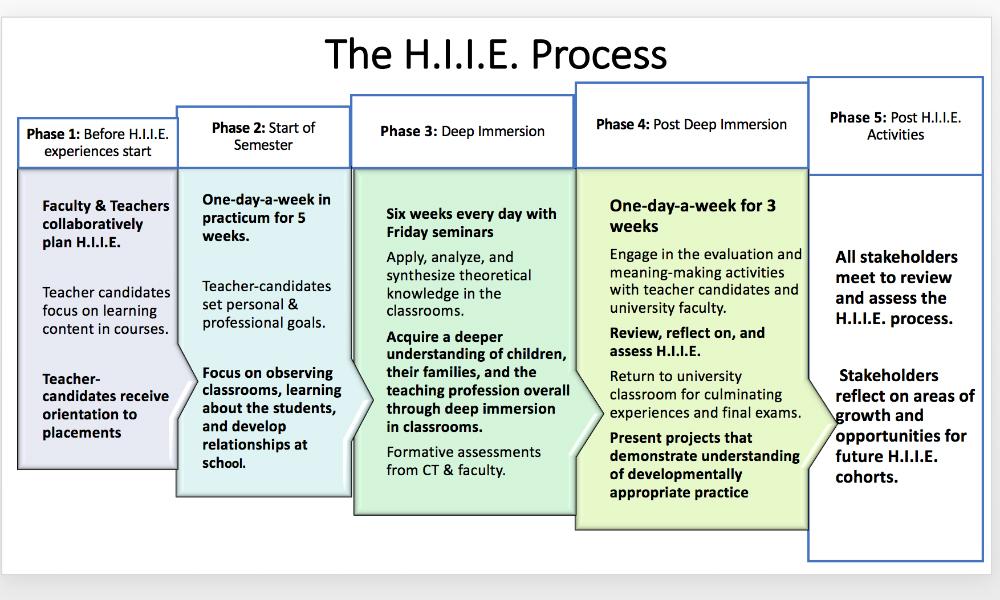Jumping right in
Immersing pre-service teachers in high needs schools
Education
SUMMARY: Dr. Smita Mathur and colleagues collaborated with five local elementary schools to give pre-service teachers a High Impact Immersive Experience . . .
Do remember you when you first learned to swim? You have to jump right in!
Flipping the traditional undergraduate practicum experience for education majors, Dr. Smita Mathur and colleagues collaborated with five local elementary schools to give pre-service teachers a six-week immersive experience in high needs schools rather than a one-day-a-week practicum. Their research found that with a high impact immersive experience the pre-service teachers rose to the challenge and were better able to connect and identify with their diverse classrooms.
In our own backyard
Initially, the program was intended to be a domestic study abroad in Florida where there are high immigrant and refugee populations. After examining the proposal, Dean Phillip Wishon recommended doing the program in Harrisonburg, where there are high numbers of refugee, immigrant and low–income communities.
In Harrisonburg, 91 percent of teachers are white, middle class women while about 37 percent of students are white and about 60 percent of students are from minority populations. With the amount of diversity, there is also intense poverty, with 72 percent of all elementary students using the free and reduced lunch program. With such high needs, new teachers can be under-prepared and not identify with the students they are teaching.

“We wanted to prepare our teachers to serve the reality of Harrisonburg,” said Mathur. “The only way we could come up with is to have them immerse with the children, the families, the schools and learn in the field.”
The immersion process
Mathur and colleagues took the idea of High-Impact Educational Practices of George Kuh and applied them to education students.
Mathur and a group of other teachers began their research by immersing a cohort of 20 JMU junior pre-service teachers for six weeks in five local elementary schools. The students spent five weeks in preparation; six weeks in full immersion with their classes, attending the same class everyday; and three weeks reflecting and unpacking the experience.
The 15-week immersive course required five different professors to collaborate to ensure that the objectives of each class fit together. Direct feedback from the school's needs were used and they worked closely with cooperating teachers. Together the professors collaborated and ventured out of their individual theoretical framework and silos to create a more congruent program for students.

After creating integrated coursework, the final grade was earned from a common final exam in addition to feedback from all professors, the lead teacher and principal or vice principal in the student's school.
Transformational research
"Some people believe we need to teach them a lot before they go into the schools. We tried something different, we said let them go and learn there. Instead of doing theory and memory work, we said (the students) will learn in the field as (they) work with children," said Mathur.
They used field notes and reflections from students and teachers for feedback in their research. Although the experience was difficult, the students were challenged and transformed. The research found that the students were able to form deeper connections with students, lead teachers and families, as well as identify with their high-needs students through the experience.
|
“They came back with beautiful experiences that we had never seen before.They struggled but it was transformational.” –Smita Mathur, Education Professor |
Mathur is interested in hearing feedback from schools doing different high-impact practices with their pre-service teachers, especially in the Colonial Academic Alliance. If you would like to be a part of the discussion please email her at mathursx@jmu.edu.
To read the research and faculty reflections, click here.

